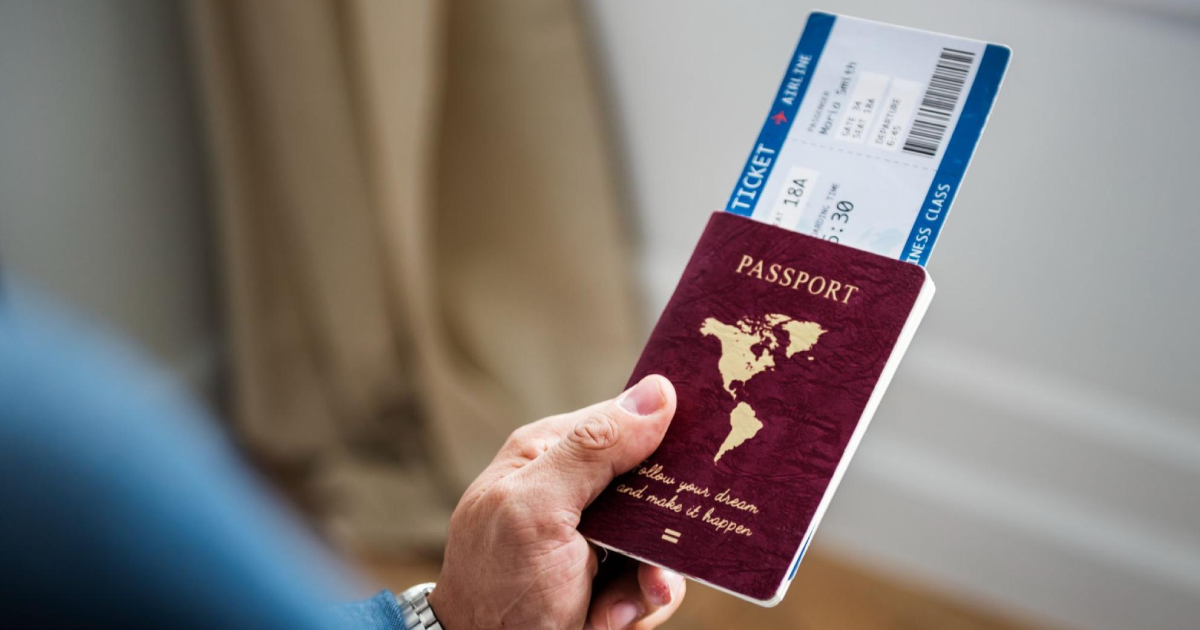
Corporate Travel Policy Best Practices: A Complete Guide for Smarter Business Travel
Without the right rules in place, it can be hard to keep track of business trips. A lack of structure can ruin even the best-planned corporate trips, from going over budget to policy violations. That is where a good corporate travel policy comes in. It helps make things clearer, ensures proper compliance, and brings the costs down. Making a policy is not just about writing down the rules, though. It is about making a smart travel plan that helps the business and its employees.
This article will explain what a corporate travel policy is, why your business needs one, and how to make it work best. We will give you tips on how to guess your travel costs and what a good travel policy should and should not cover. So let’s get started, shall we?
What is a Corporate Travel Policy?
Let us begin with the basics. What is a corporate travel policy?
A corporate travel policy is a formal, detailed document that lays out the rules, procedures, and guidelines that employees must follow when they travel for work. These rules can cover everything from how to book a trip and how much money you can spend on travel to how to get your money back and who to call in case of an emergency.
You can think of a corporate travel policy as a travel playbook that helps with travel logistics, keeps costs down, and makes sure employees stay safe and informed while they are away.
Why Do You Need a Corporate Travel Policy?
If a company does not have a travel policy, business trips can be a logistical nightmare. Employees might book flights at the last minute, spend way more than the limit on hotels, or not know how to travel safely. You are not only wasting your company’s money, but you are also making things very confusing and hard to follow.
Here’s what a solid travel policy helps you achieve:
- Budget Control: Setting clear spending limits helps keep costs down and plan for the future.
- Employee Clarity: Teams know how to make reservations, what expenses can be reimbursed, and who can approve them.
- Extra Compliance: It is easier to keep track of receipts and follow company-wide rules when there are clear rules.
- Safety: A clear policy helps employees know who to call in case of an emergency, what kind of insurance they have, and what health issues to be aware of, especially when travelling abroad.
What Should Your Corporate Travel Policy Cover?
Before we get into best practices, it would help to understand what key aspects to put in your travel policy:
- Booking Guidelines: Only use approved travel partners or booking sites.
- Accommodation Rules: Star ratings, price limits, and preferred vendors.
- Flight Class: Rules for economy or business class based on distance or destination.
- Per Diem and Allowances: Daily limits on meals and other costs.
- Transportation on the ground: Approved types (taxis, ridesharing, rentals).
- Travel Approval Workflow: Who gives the green light and when.
- Reimbursement Process: Timeline, paperwork, and the platform.
- Safety & Emergency Protocols: Travel insurance, emergency contacts, and a duty of care.
- Leisure Travel Merges: Guidelines on how to mix business and personal trips.
Now that you know what a policy includes, let’s look at how to make it successful.
Corporate Travel Policy Best Practices
Creating a travel policy is only half the job. Making it efficient, employee-friendly, and future-proof requires following these corporate travel policy best practices:
1. Make Sure To Have Clear Objectives
Start by understanding your company’s travel goals. Is your primary focus cost-efficiency, safety, or employee experience? Your policy should reflect these objectives clearly.
2. It is Best To Involve Multiple Stakeholders
Get input from HR, finance, department heads, and frequent travellers. This will help create a policy that works for everyone, not just the finance team.
3. Partner With a Trusted Travel Agency
One of the most effective practices? Engaging a trustworthy corporate travel agency like Oasis Tours. Oasis has over 35 years of industry experience and has built strong relationships with hotels, airlines, and transport vendors. It operates as a partner that actually helps you receive the best deals, allows you to become proficient in seamless bookings, provides 24/7 support throughout the travel, and results in less operational pressure on your internal staffing team. Travelling is just safer, smoother, and ensures your employees have a better experience.
4. Customise for Different Teams
Not all departments travel the same way. Sales teams may need more flexibility than tech teams. Offer tiered rules or department-specific guidelines to suit diverse travel needs.
5. Use Easy, Jargon-Free Language
Keep it simple. Avoid heavy corporate jargon. The easier your policy is to understand, the more likely it is to be followed.
6. Keep the Policy Easily Accessible
Upload it to your company’s internal portals, link it to your booking platform, and send it out via onboarding materials and HR emails. Awareness is half the battle.
7. Review And Update Regularly
Business travel is constantly evolving. From hybrid work models to “bleisure” travel, trends change fast. Set a cadence to review your policy annually and update it based on feedback and new market realities.
How To Forecast the Budget for Travel
An effective corporate travel policy doesn’t just control spending; it starts with smart forecasting. Here’s how you can forecast your company’s travel budget:
- Review Past Travel Data: Analyse past travel spending by department and frequency.
- Factor in Seasonal Travel Trends: Some months may require more business trips (e.g., financial year-end).
- Account for Inflation & Vendor Price Changes: Update your budgets based on current airfare and hotel costs.
- Build Buffers: Always leave room for emergencies, last-minute meetings, or price fluctuations.
Having a solid forecast not only helps in policy creation but also aligns the travel plan with broader financial goals.
Essentials in Your Company’s Travel Policy
If you’re building your first policy or revamping an old one, here’s a quick list of non-negotiables:
- Clear booking channels and process
- Expense limits for each category
- Rules for international vs. domestic travel
- Approval flow and turnaround time
- List of preferred vendors
- Emergency protocols and contact info
- Reimbursement guidelines with timelines
- Guidelines for travel upgrades or combining personal travel
- Data privacy and traveller information protection
Final Thoughts
A travel policy that is well thought out, focuses on employees, and is budget-friendly changes the way your company handles travel. It can help you save money, protect your employees, and streamline operations. But making the policy is just the first step. To keep your business travel policies up to date and effective, follow best practices, work with trusted travel partners, and regularly update your action plan.
If you are looking for a trusted corporate travel agency with expert service and custom solutions that fit your business’s needs, talk to Oasis Tours. Choosing the right partner is the first step to a smooth travel.
FAQs
What is a corporate travel policy?
A corporate travel policy is a set of guidelines that outlines how employees should book, manage, and expense their business trips. It helps streamline travel, control costs, and ensure consistency across the organisation.
What are the 4 C’s of corporate travel management?
The 4 C’s of corporate travel management are:
- Control: Managing bookings and budgets effectively
- Compliance: Ensuring employees follow the travel policy
- Cost Savings: Reducing unnecessary expenses
- Care: Supporting employee safety and well-being while travelling
What are the six phases of corporate travel management?
The six phases include:
- Policy creation
- Budget planning
- Booking and approvals
- Travel execution
- Expense reporting
- Post-trip analysis
These steps help companies run a smooth and cost-effective travel program.


